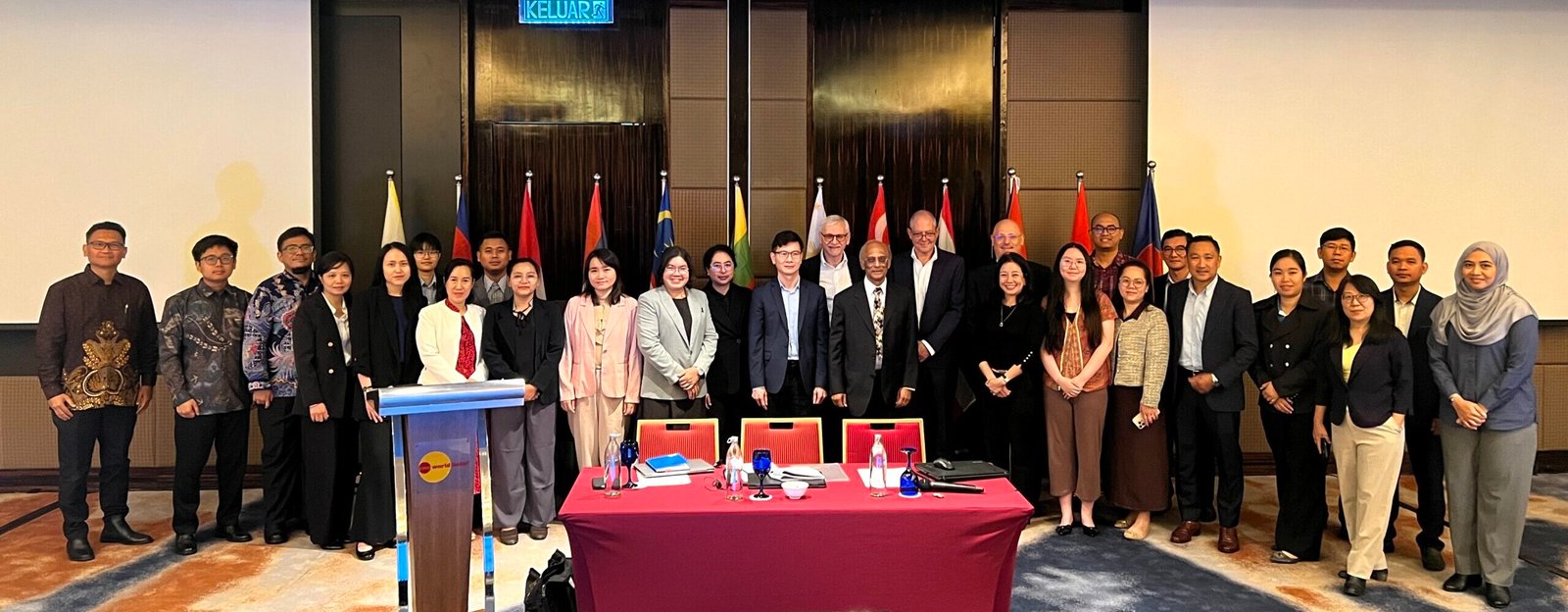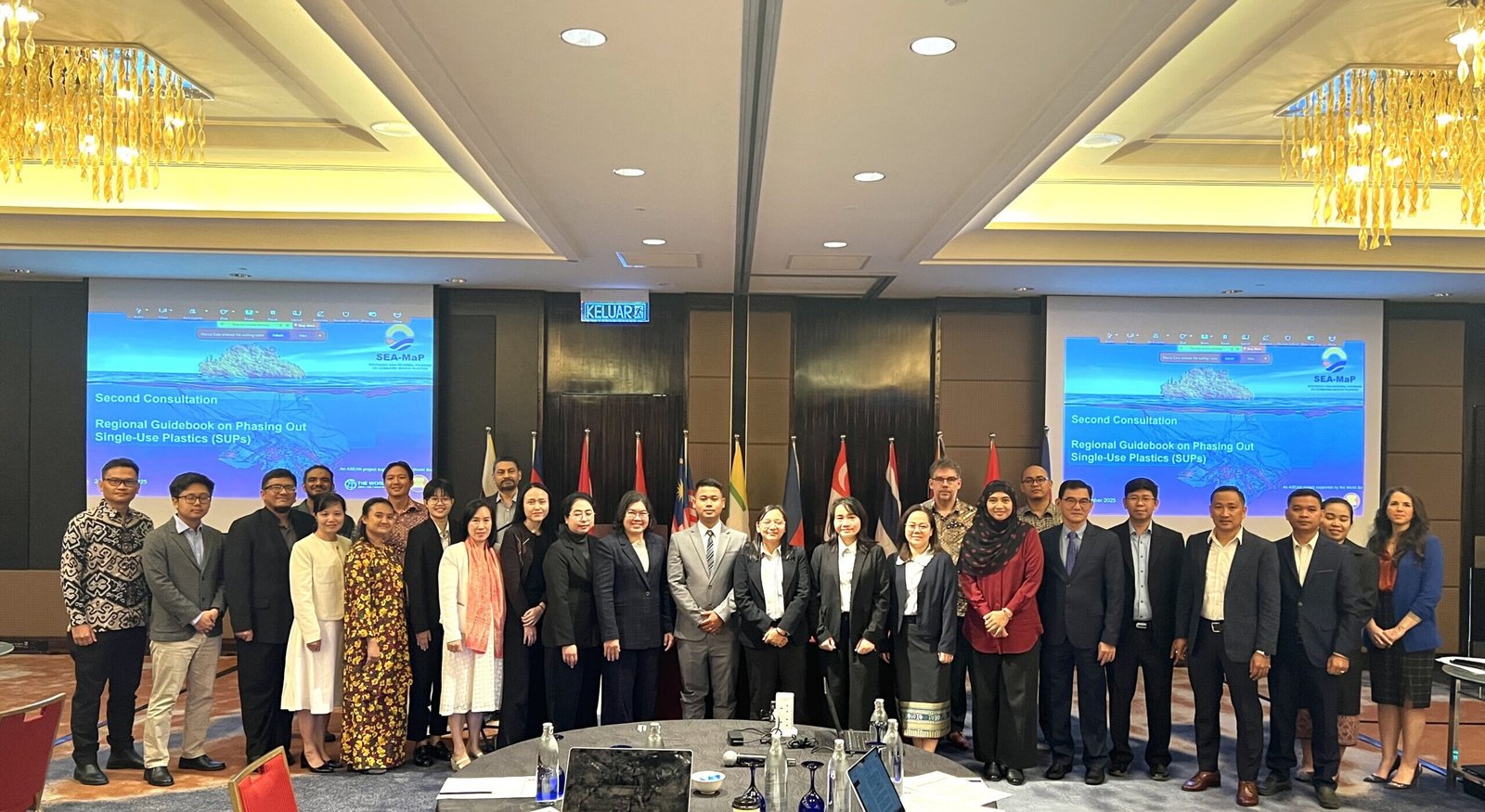The Southeast Asia Regional Program on Combating Marine Plastics (SEA-MaP) is a five-year project that aims to contribute to the prevention of land- and sea-based marine plastic pollution in Southeast Asia by:
Reducing plastics consumption
Increasing recycling
Minimizing leakages
Endorsed by the Member States of the Association of Southeast Asian Nations (ASEAN) in 2022, the SEA-MaP Regional Project will provide support to strengthen regional policies and institutions for plastics circularity, as well as establish regional platforms for innovation, investments, knowledge, and partnerships.
SEA-MaP is pleased to announce that ASEAN has endorsed the Regional Behavioral Change Communication (BCC) Strategy Playbook on Plastic and Plastic Waste in ASEAN.
The Playbook is envisaged to serve as a practical guide for implementing effective BCC campaigns, targeting three key behaviors: litter reduction, decreased single-use plastic consumption, and improved sorting and recycling practices.
SEA-MaP is pleased to publish the Synthesis Report: Recommendations for a Plastic Pollution Indicator Framework for ASEAN. This Report offers recommendations for a common indicator framework, considering the current availability of data and capacities for expanded data gathering and a roadmap towards the establishment of a regional monitoring and evaluation (M&E) mechanism.
Recommendations were informed by a background study on the status and impact of plastic pollution in ASEAN, international good practices on indicators for plastics use waste management, and marine debris, as well as existing policies and data collection practices in the ASEAN Member States.
SEA-MaP is supporting the ASEAN Member States in the implementation of the ASEAN Regional Action Plan on Combating Marine Debris in the ASEAN Member States (ASEAN RAP).
The RAP illustrates the continued commitment of ASEAN Member States to tackling marine plastic pollution and strengthening plastic policy implementation and processes across the ASEAN region.
The RAP complements and builds upon the Bangkok Declaration on Combating Marine Debris in the ASEAN Region that was adopted at the 34th ASEAN Summit in 2019.
Plastic packaging standards across the AMS
ASEAN Member States are actively implementing various initiatives on plastic packaging at the national level, ranging from the implementation of light-weighting measures in drinking water bottles, to the utilization of recycled plastics in food contact packaging.

Videoconference, 27 November 2025: The Sixth Meeting of the Project Steering Committee (PSC) of the SEA-MaP was held via video conference. It was attended by PSC members from ASEAN Member States, the ASEAN Secretariat and the SEA-MaP Project Management Unit. The SEA-MaP Regional Implementation Support Unit (RISU) housed under the United Nations Office for Project Services (UNOPS) and the World Bank (WB) were invited as observers. Representatives of consulting firms working under SEA-MaP attended their respective technical deliverable sessions to present updates.
Read more →
Kuala Lumpur, Malaysia, 25 November 2025: The SEA-MaP Regional Project held a Government Consultation for Development of the Best Practice Manual for Development of Minimum Standards and Technical Requirements for Plastic Packaging and Labeling via hybrid mode. The Manual aims to improve understanding and support the development of standards and labeling for more sustainable plastic packaging, and at moving towards harmonizing standards and mutual recognition for plastic packaging in the ASEAN region.
Read more →
Kuala Lumpur, Malaysia, 24 November 2025: The SEA-MaP Regional Project held a Government Consultation for Development of the Regional Guidebook on Phasing Out Single-use Plastics (SUP) via hybrid mode. The Guidebook aims to provide policymakers in ASEAN with guiding principles for the effective implementation of SUP reduction policies.
Read more →
Project Management Unit (PMU)
1st Floor, Heritage Building
The ASEAN Secretariat
70A Jalan Sisingamangaraja
Jakarta 12110, Indonesia